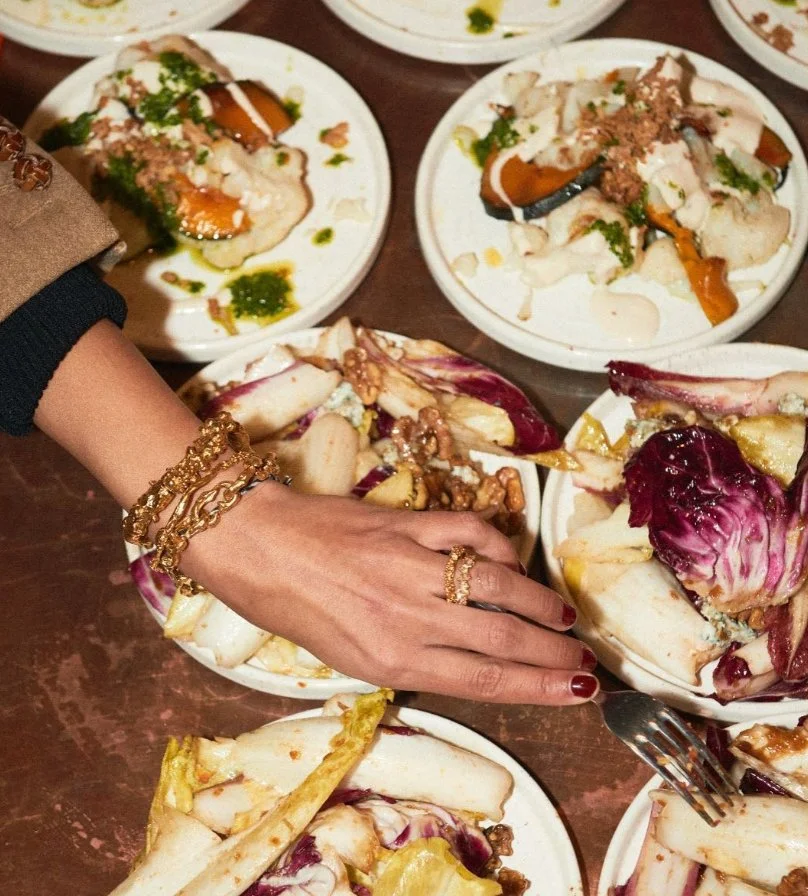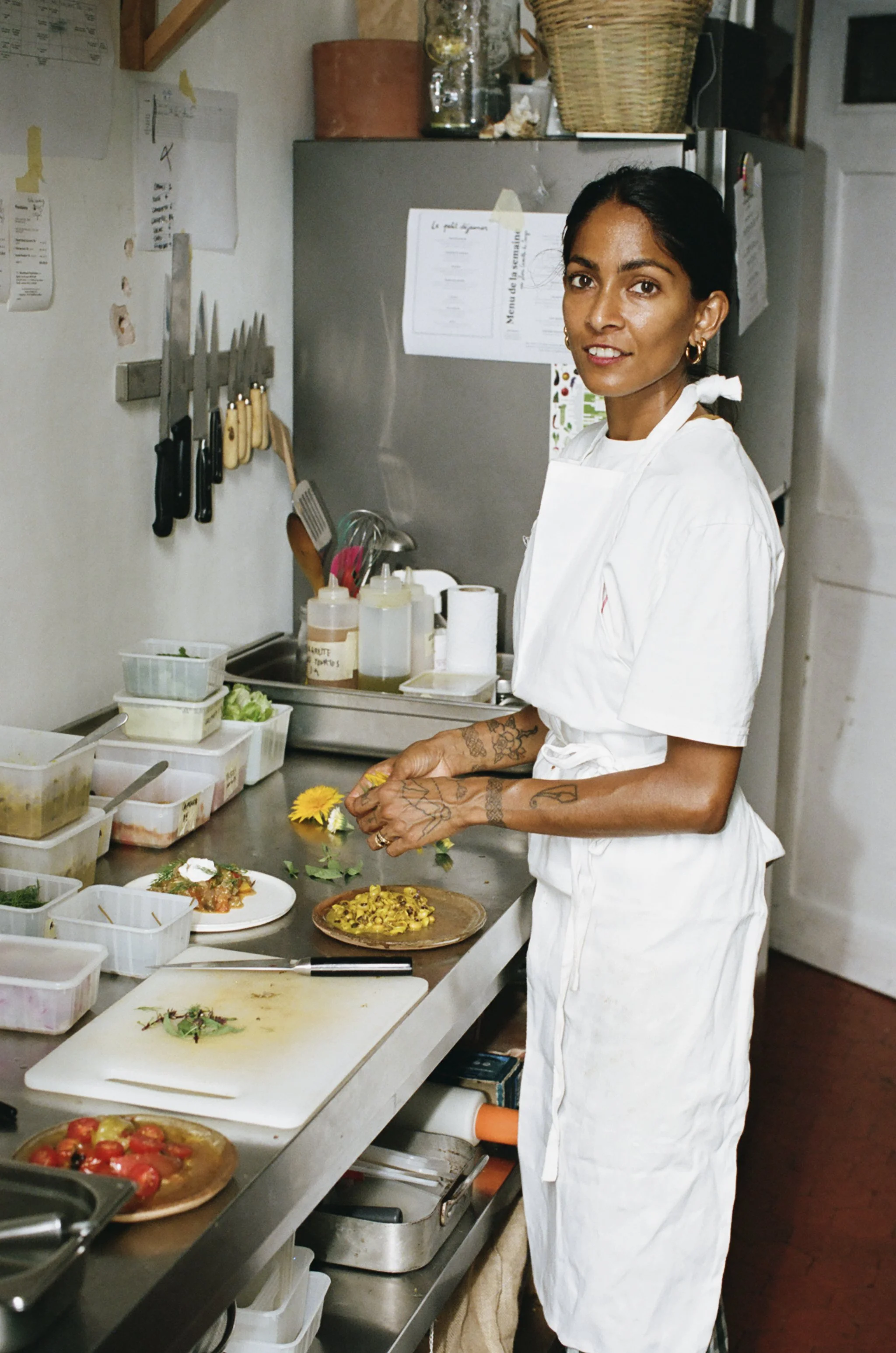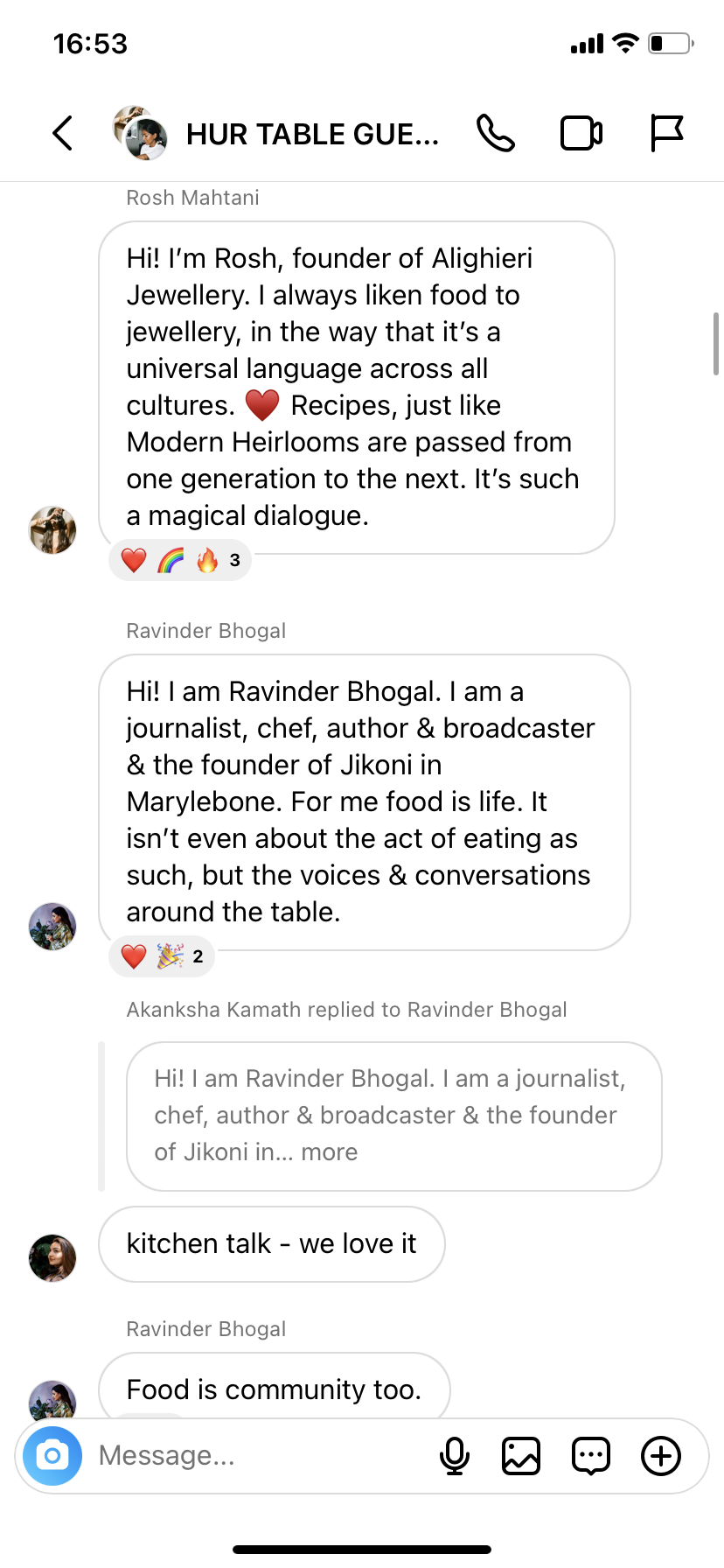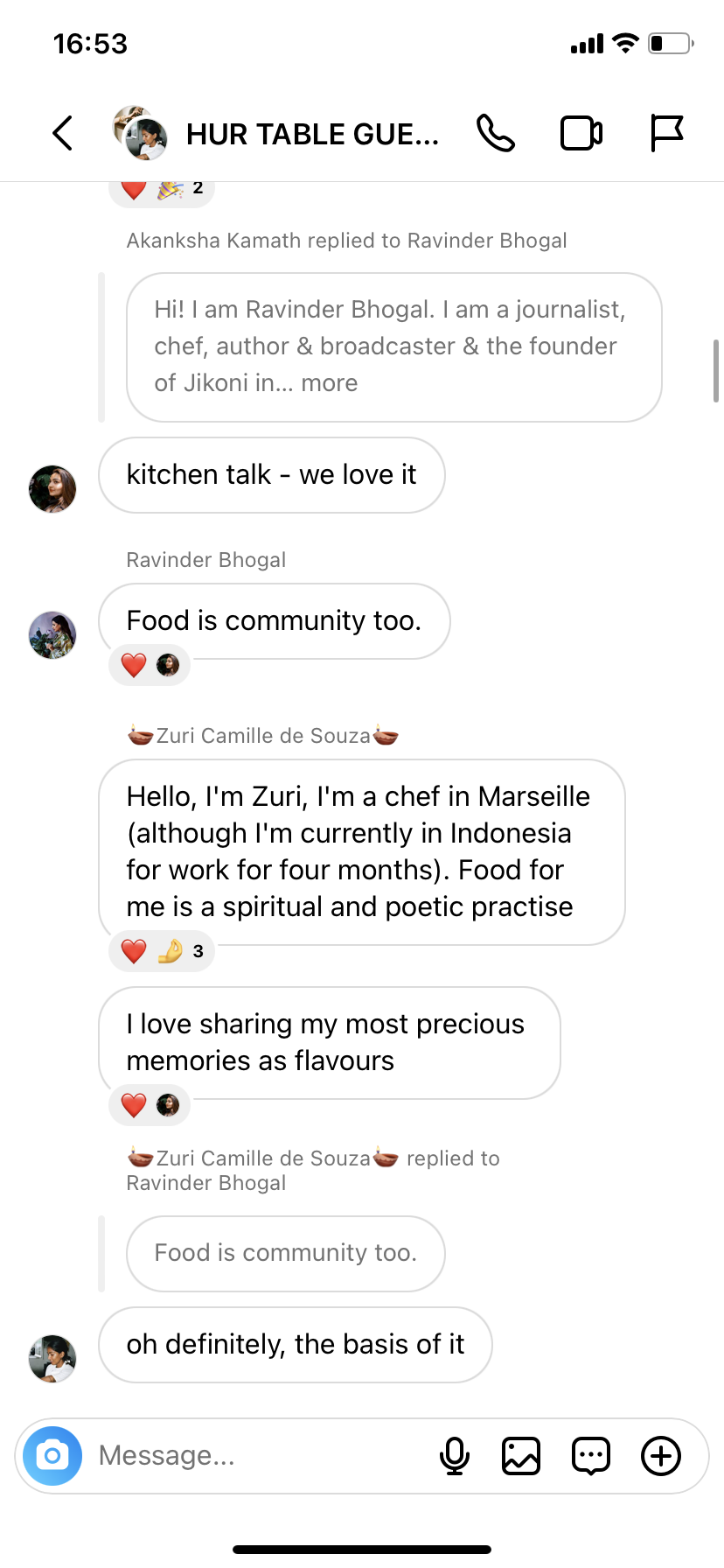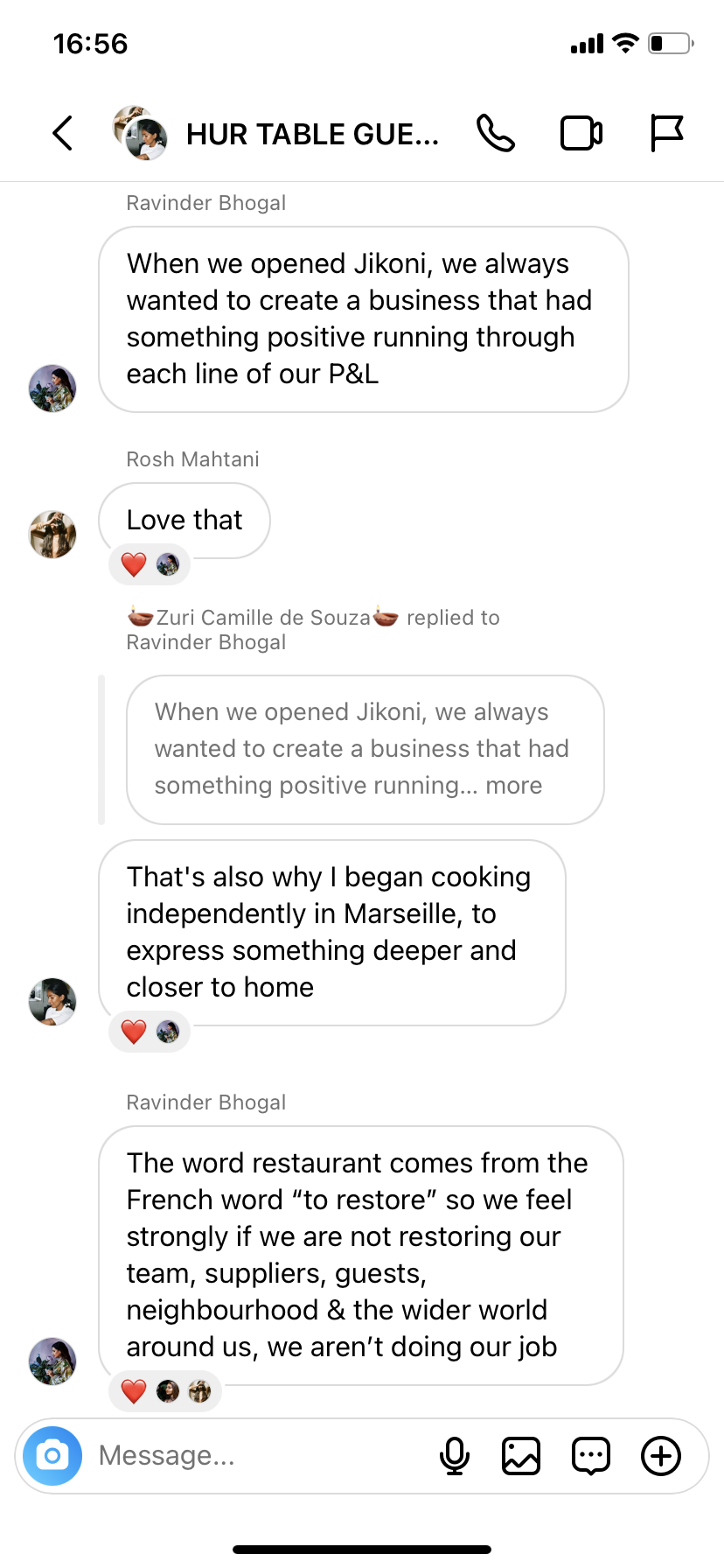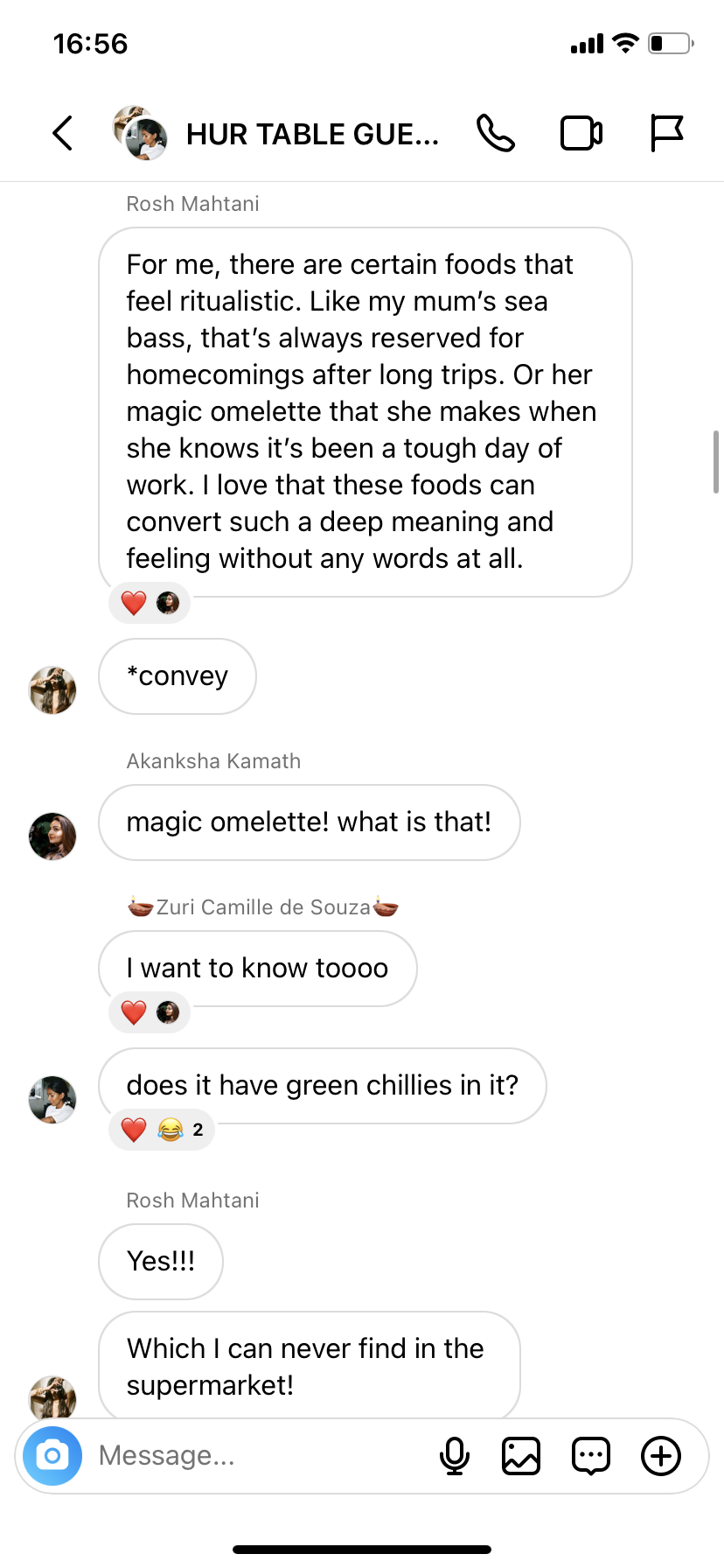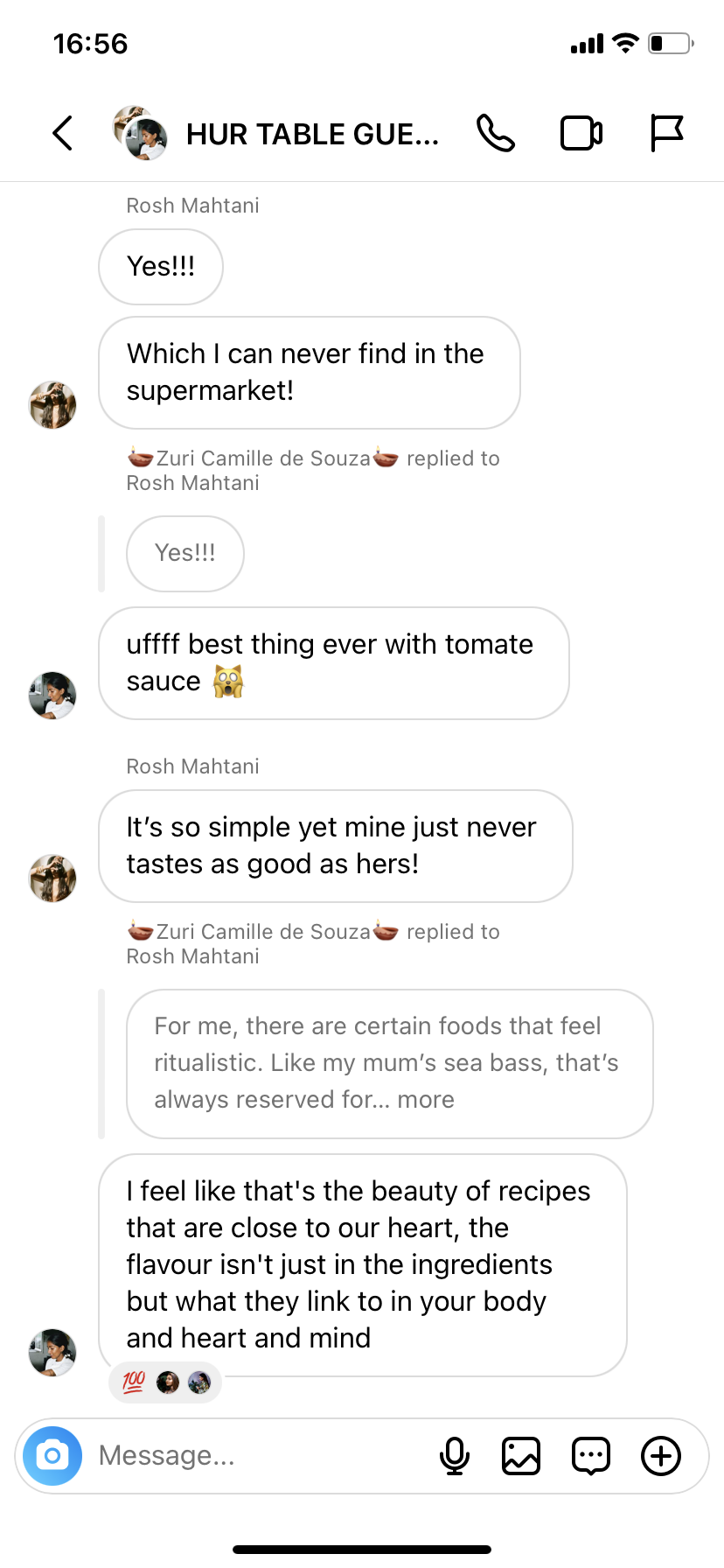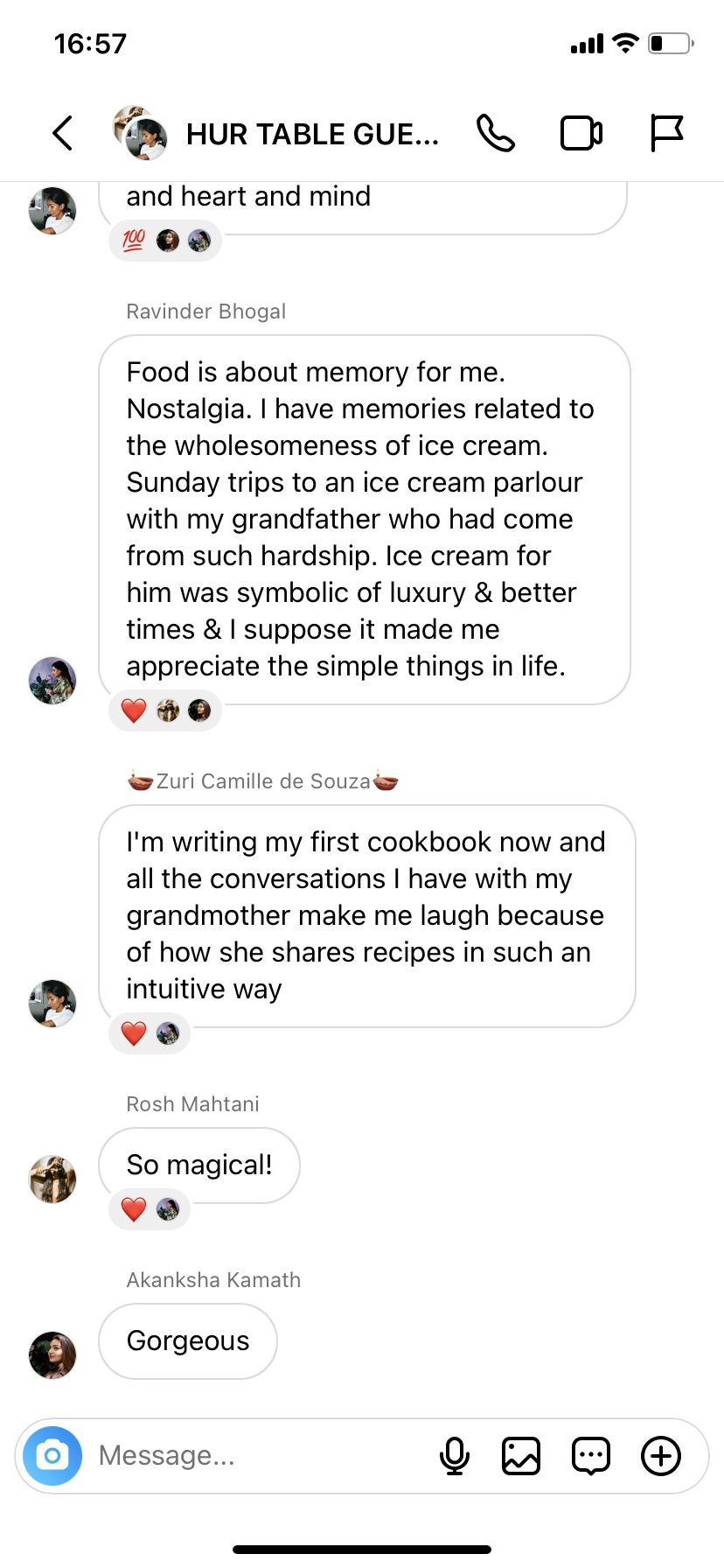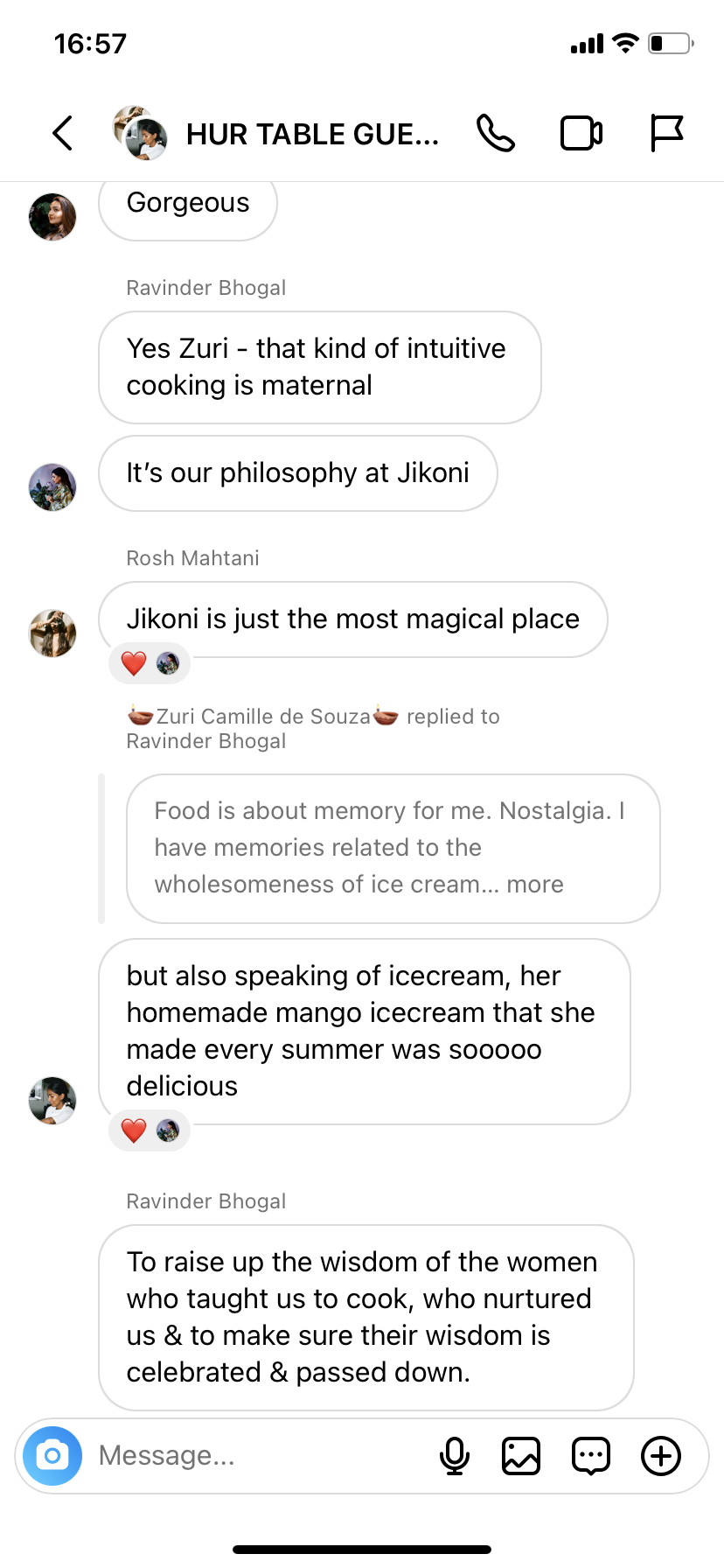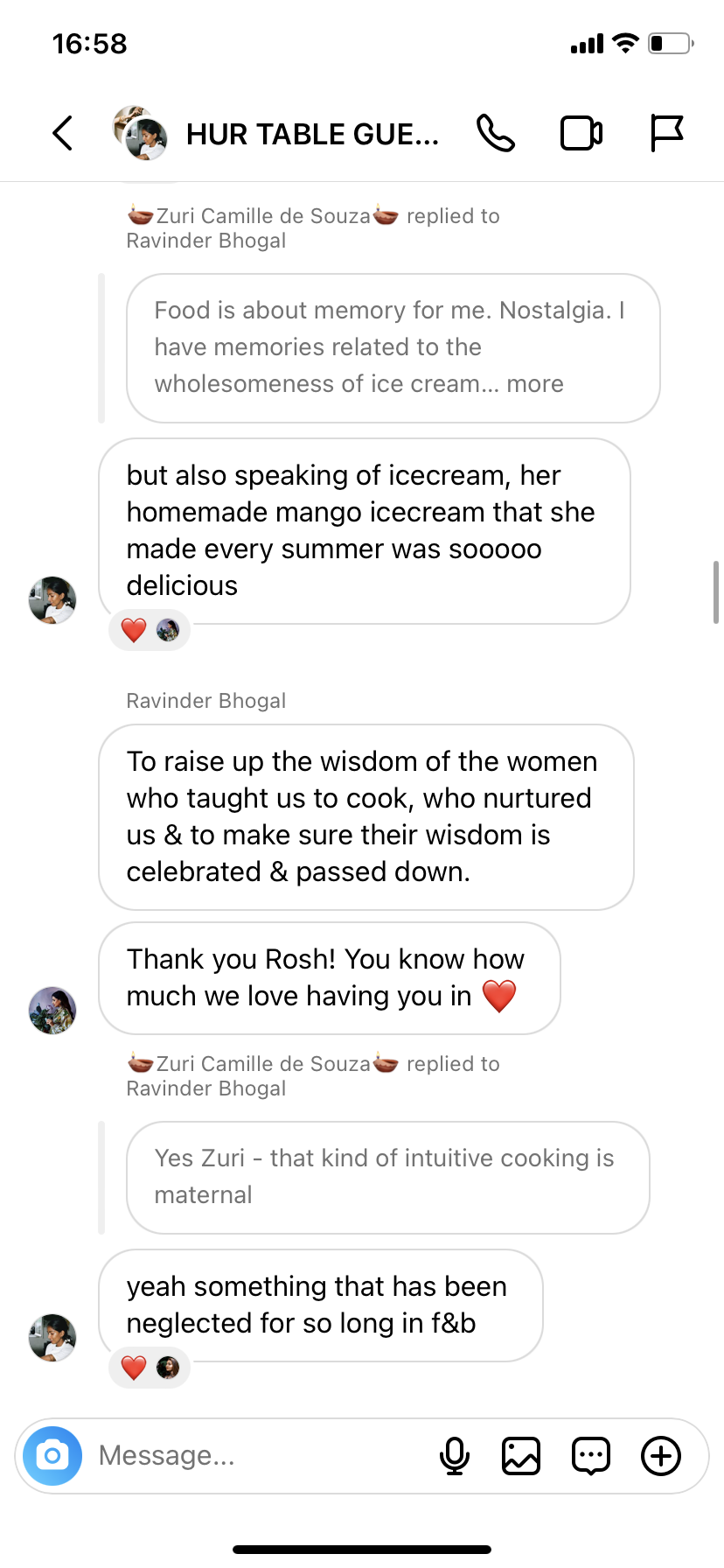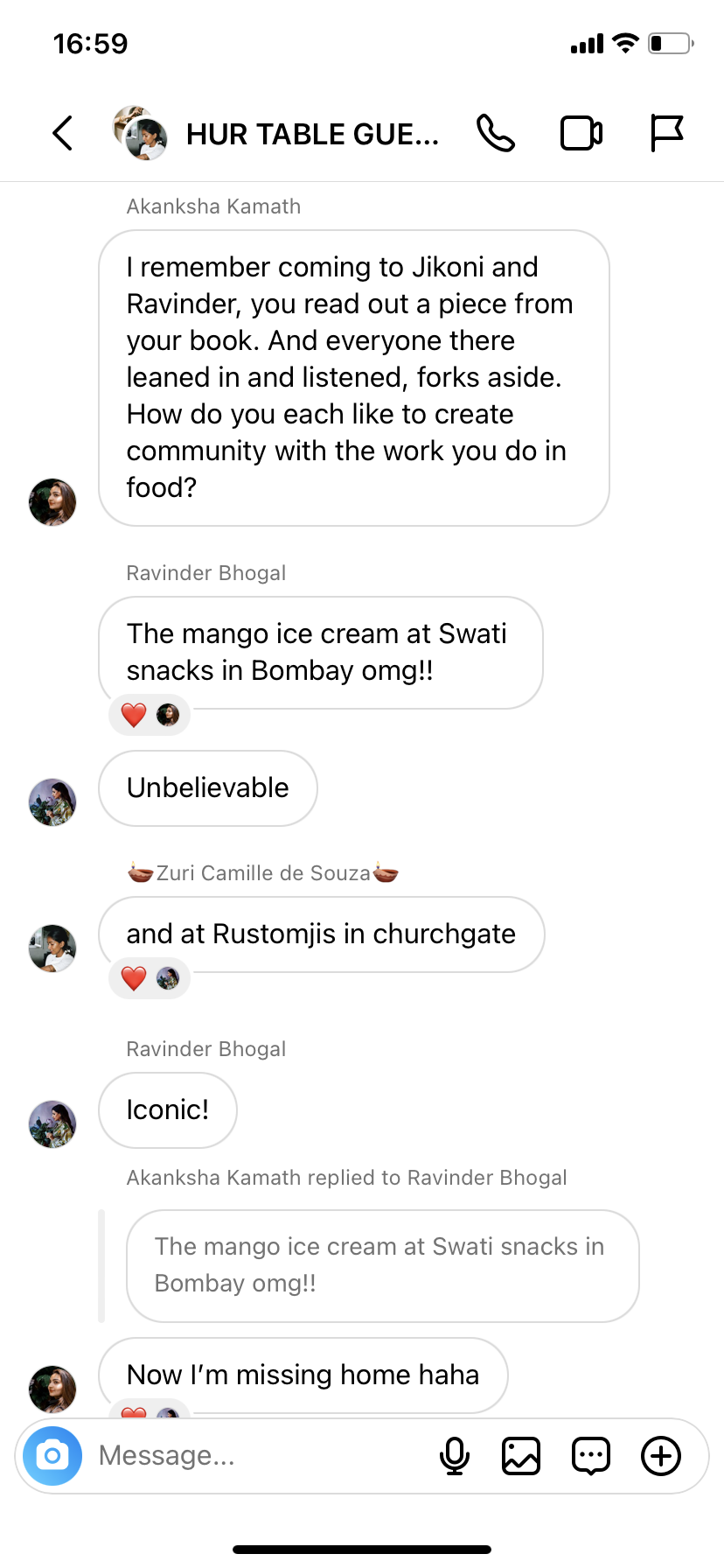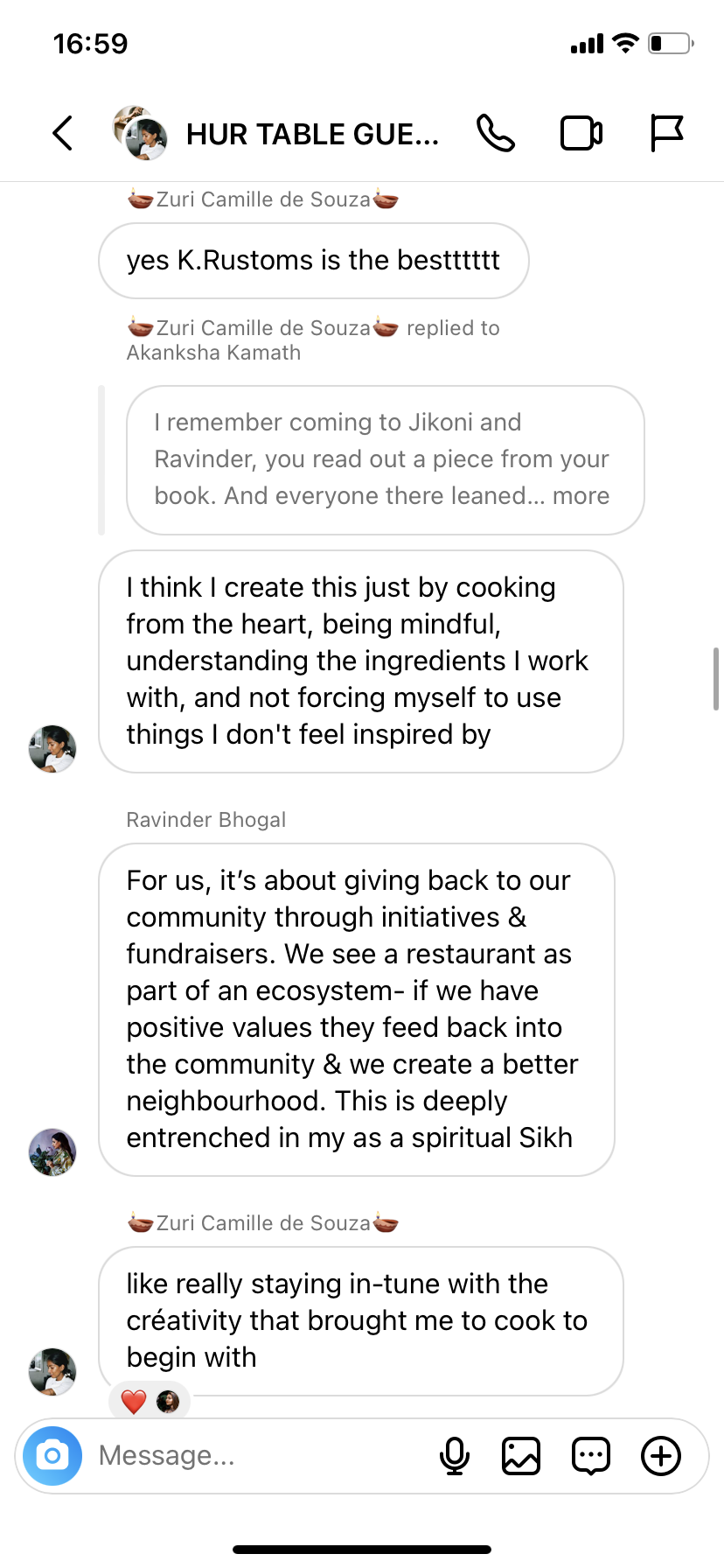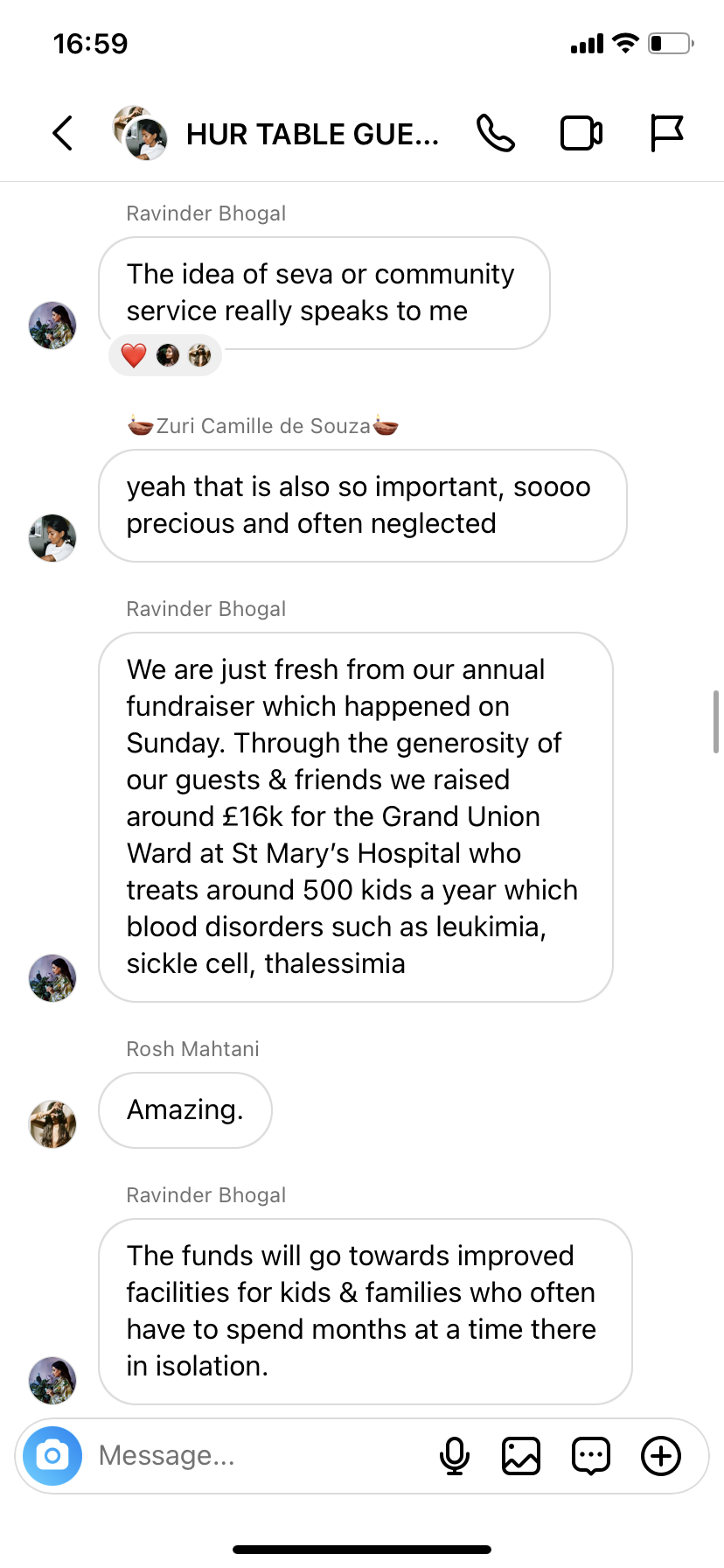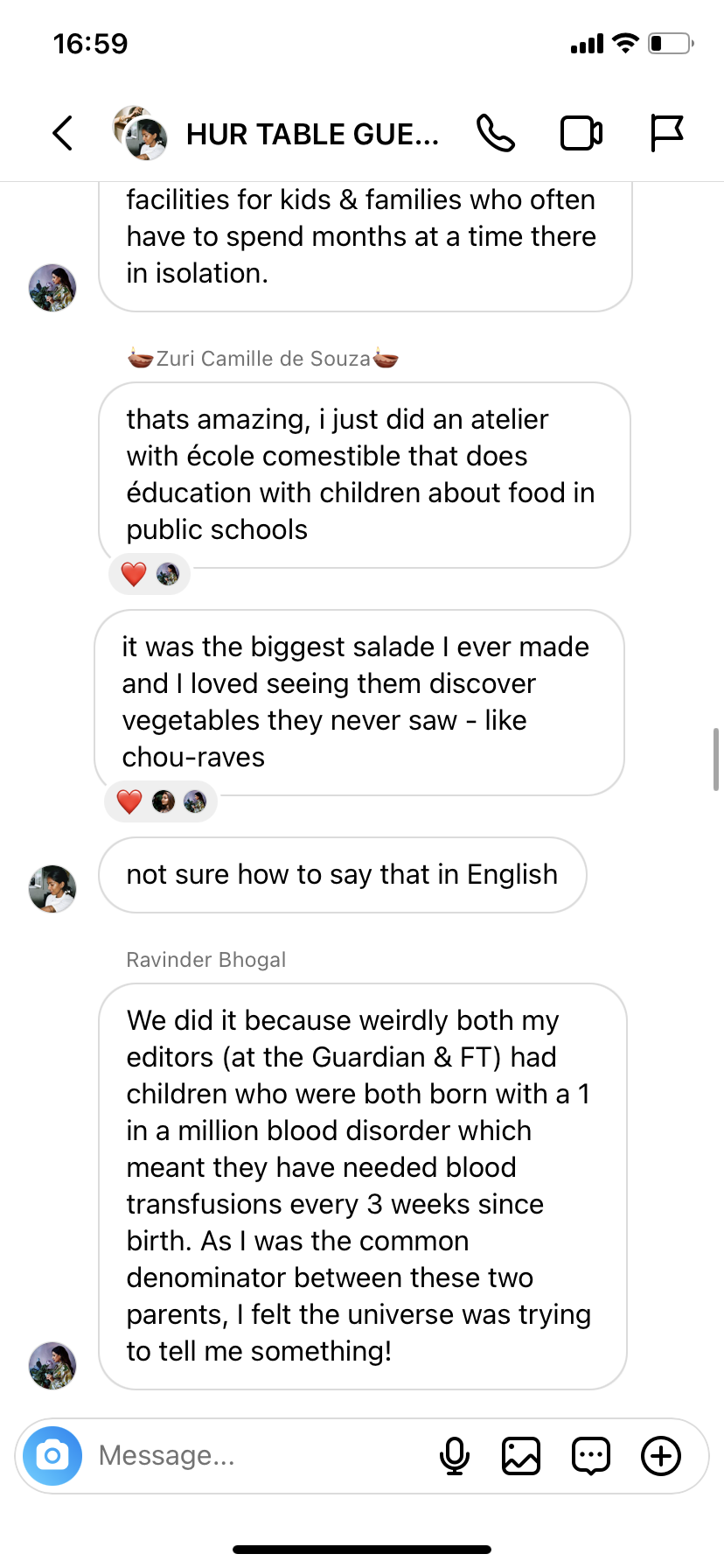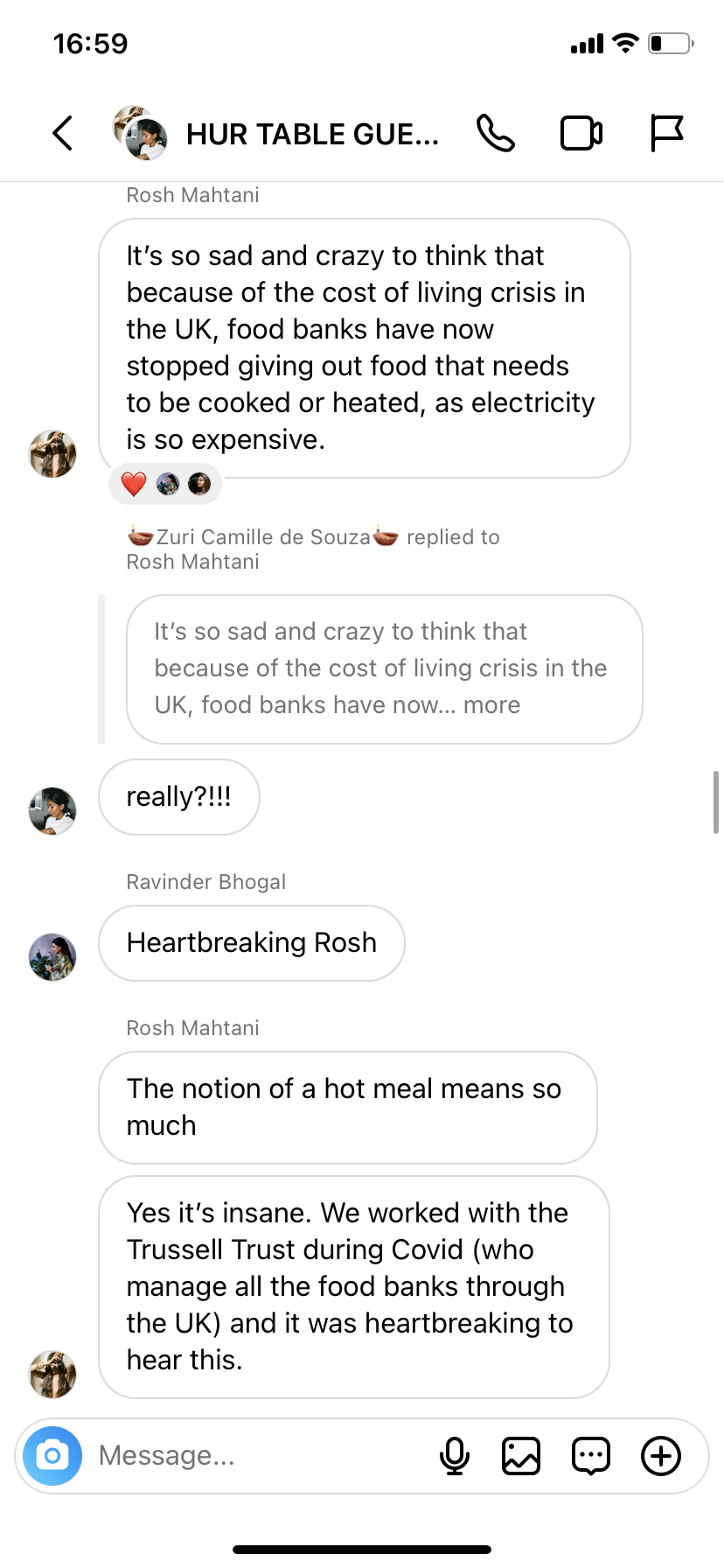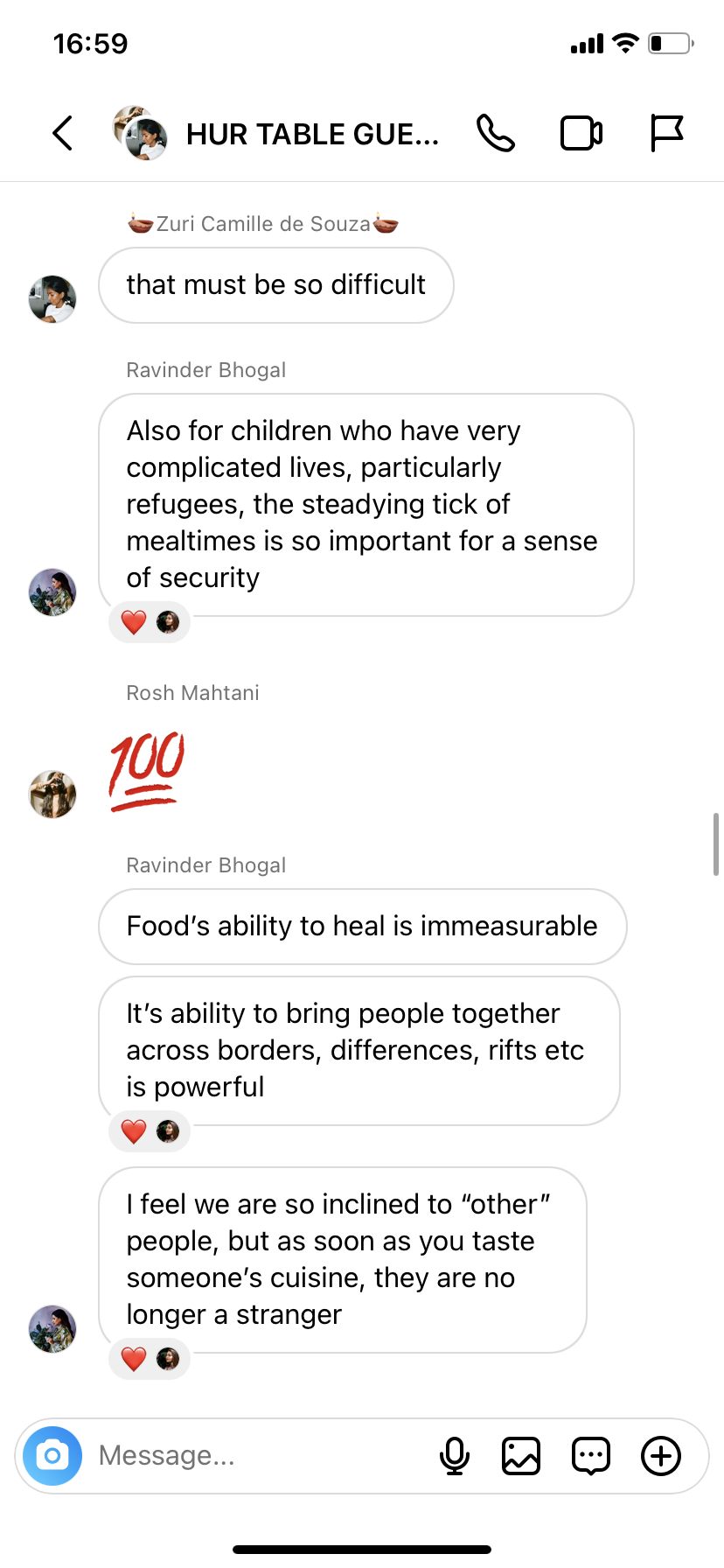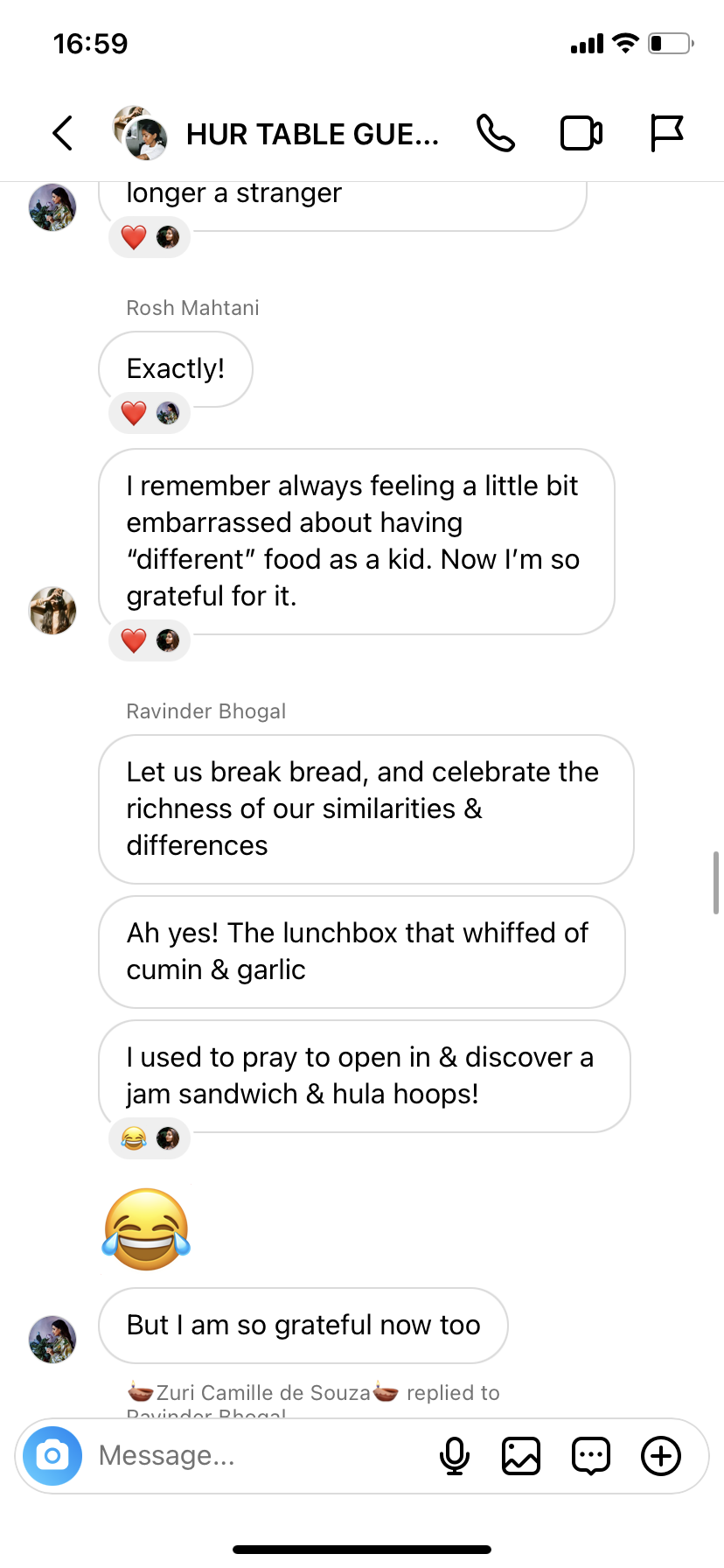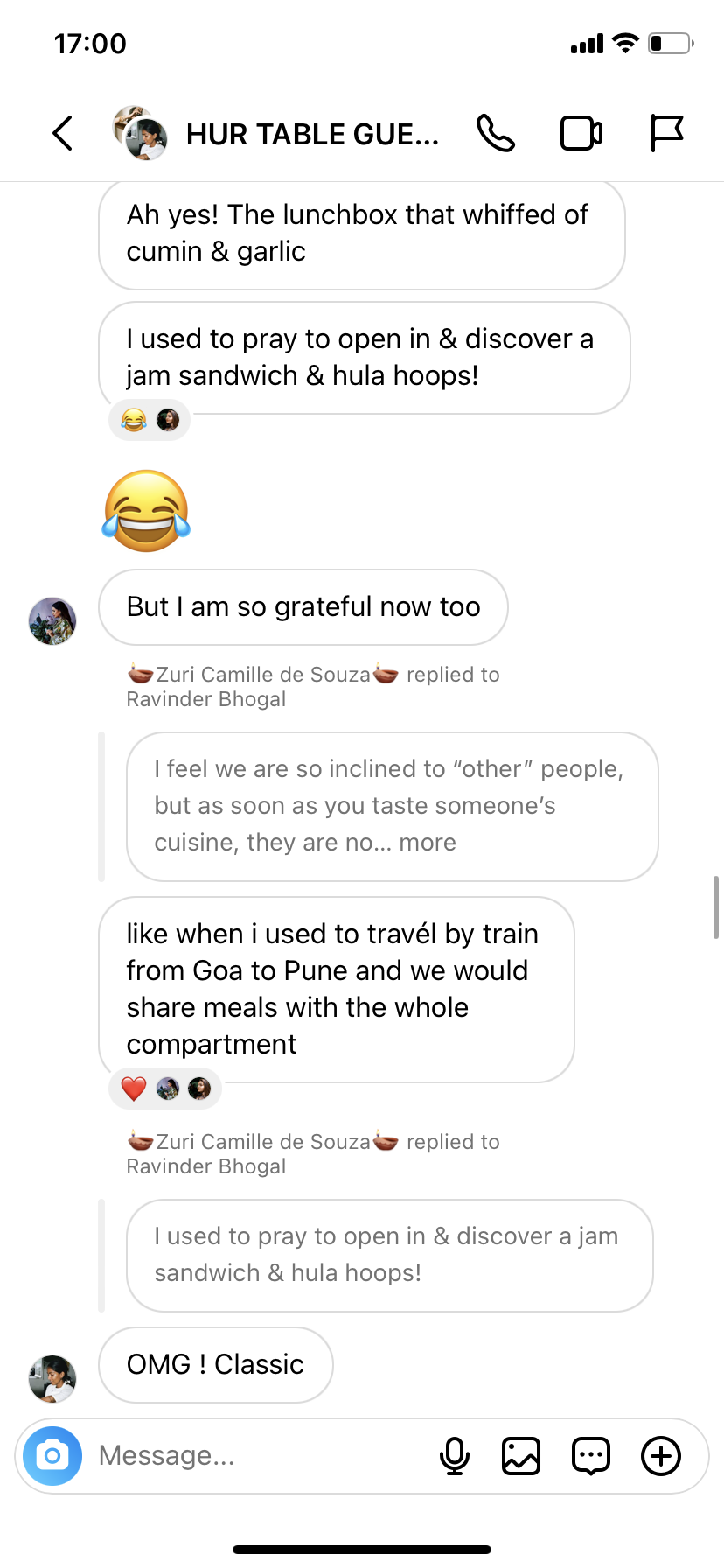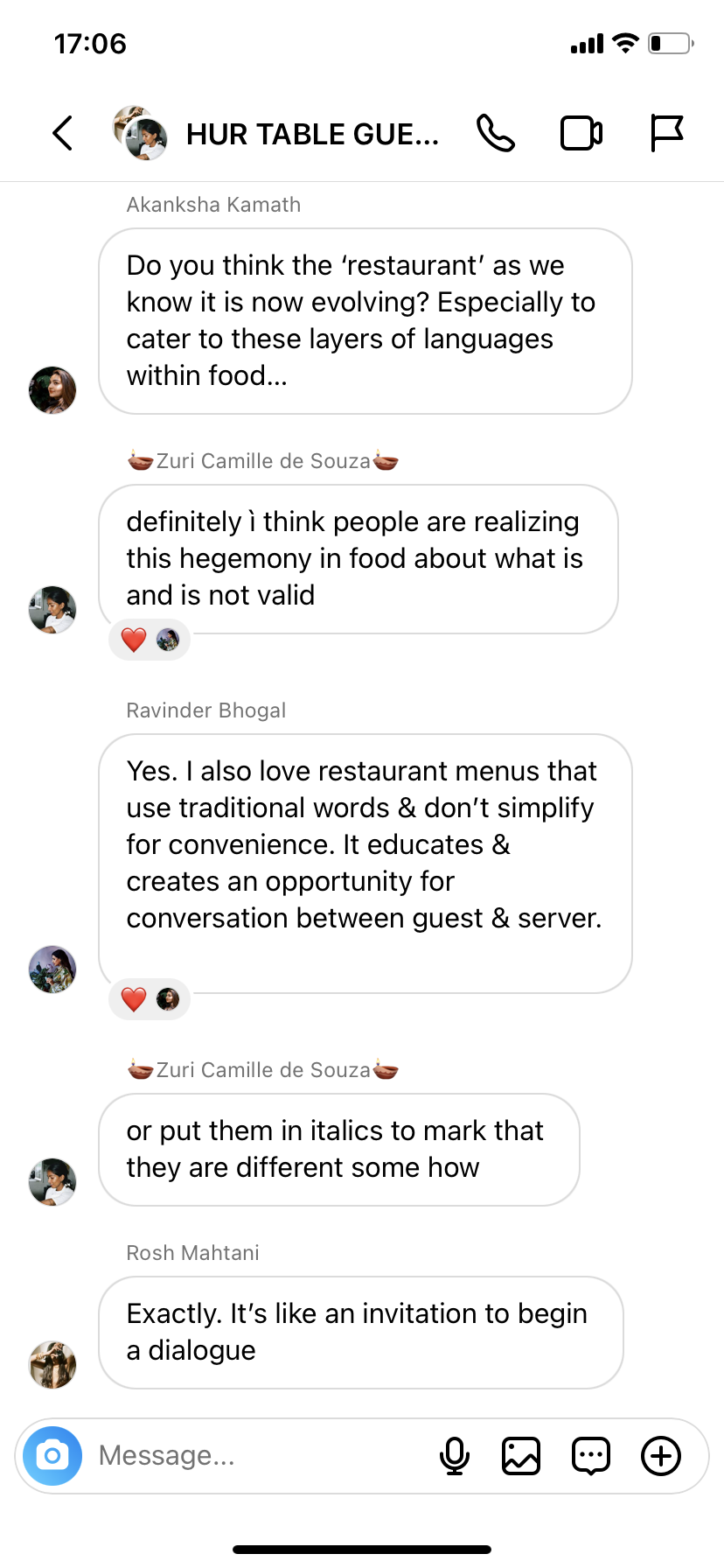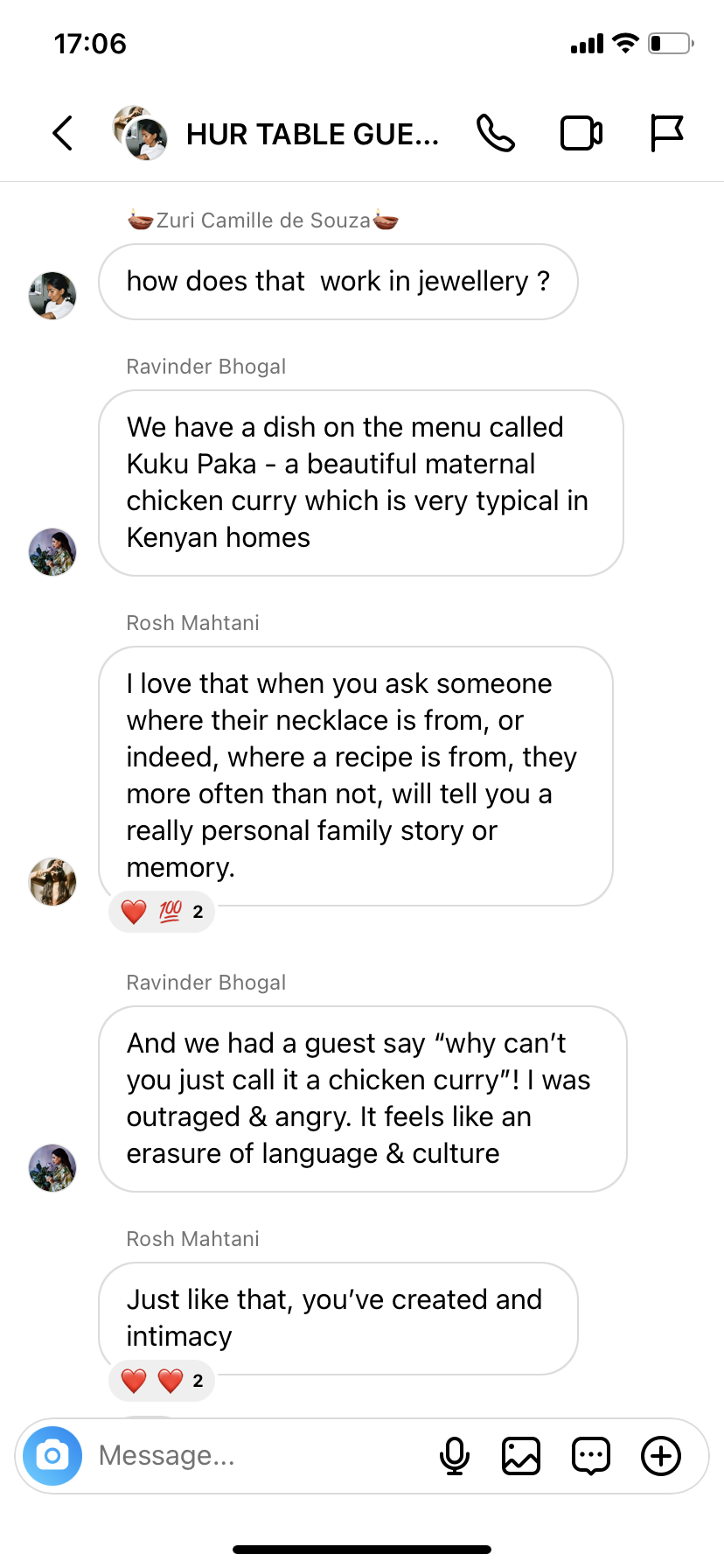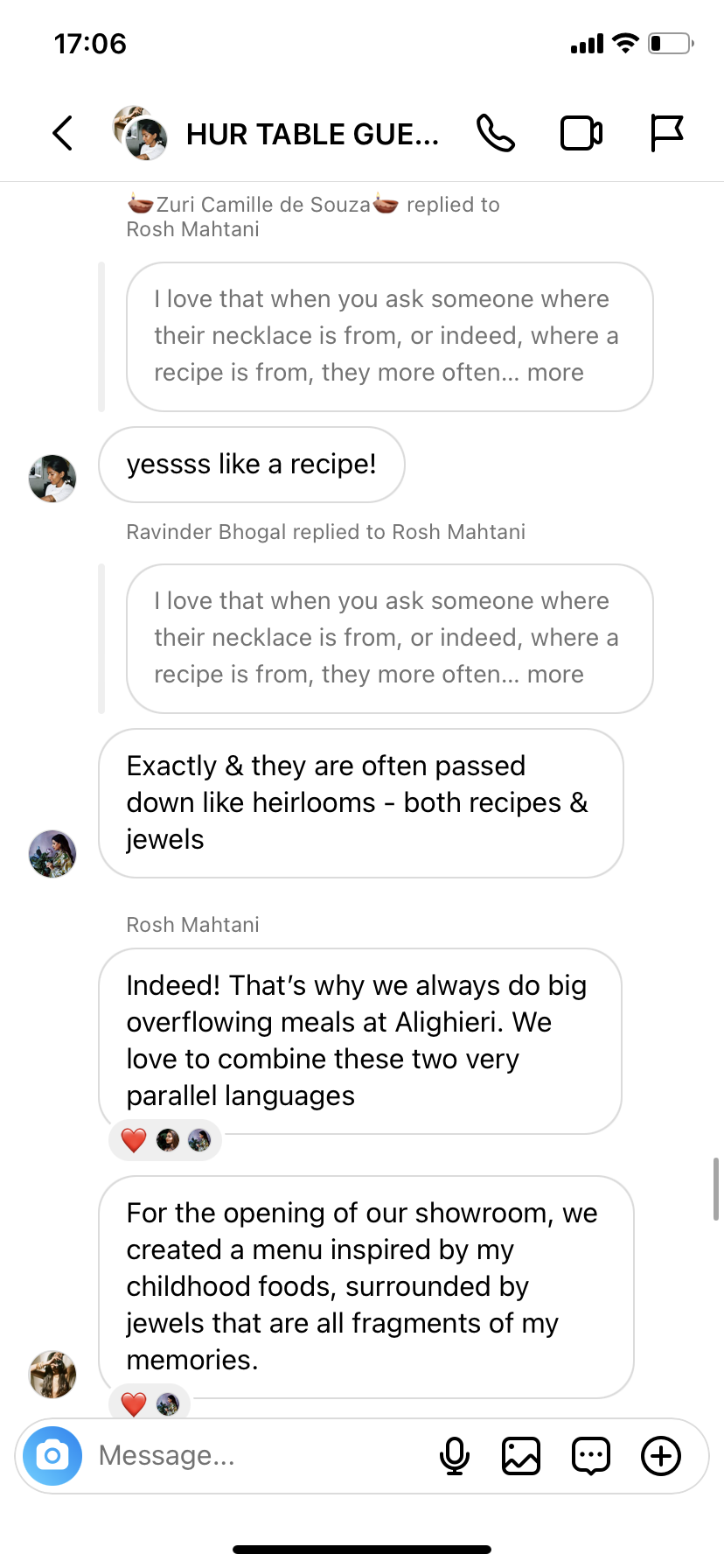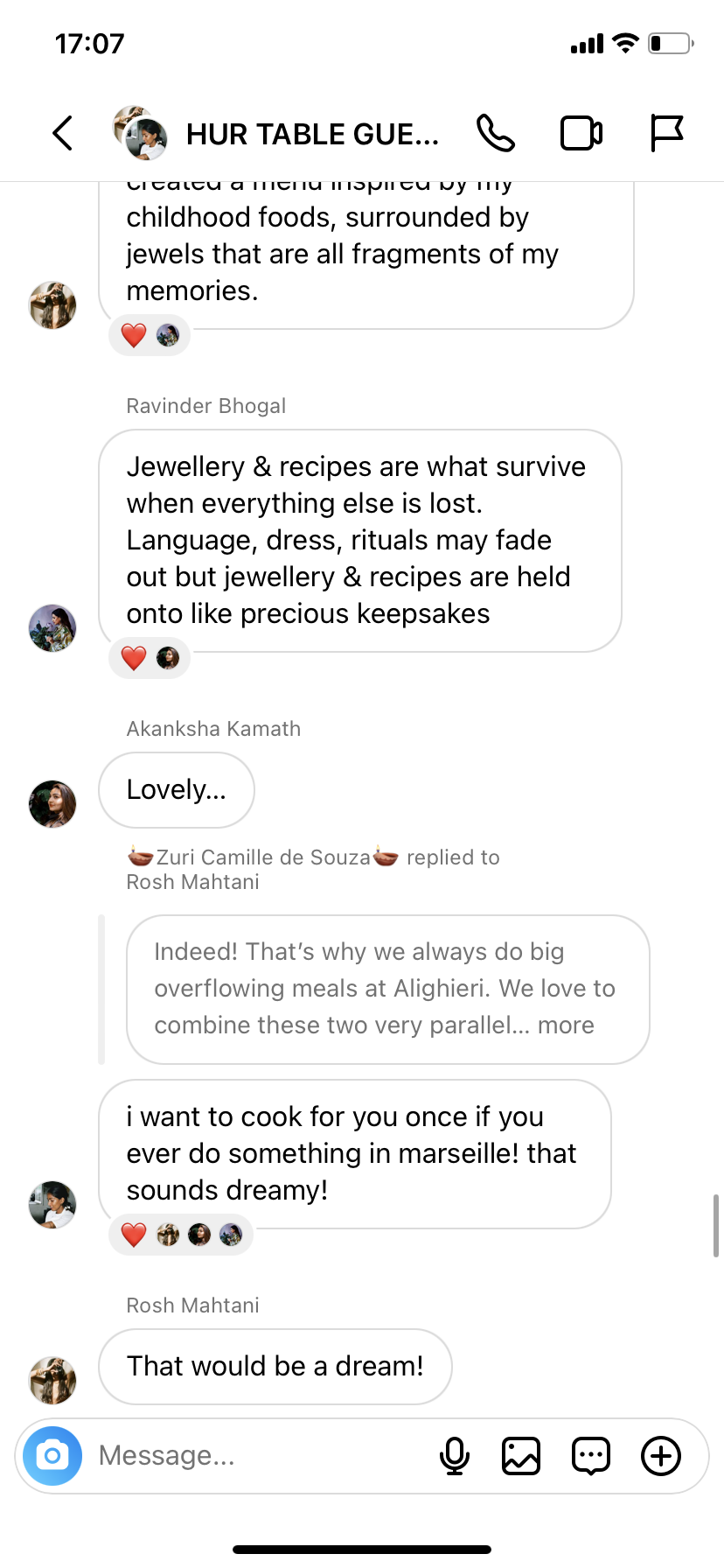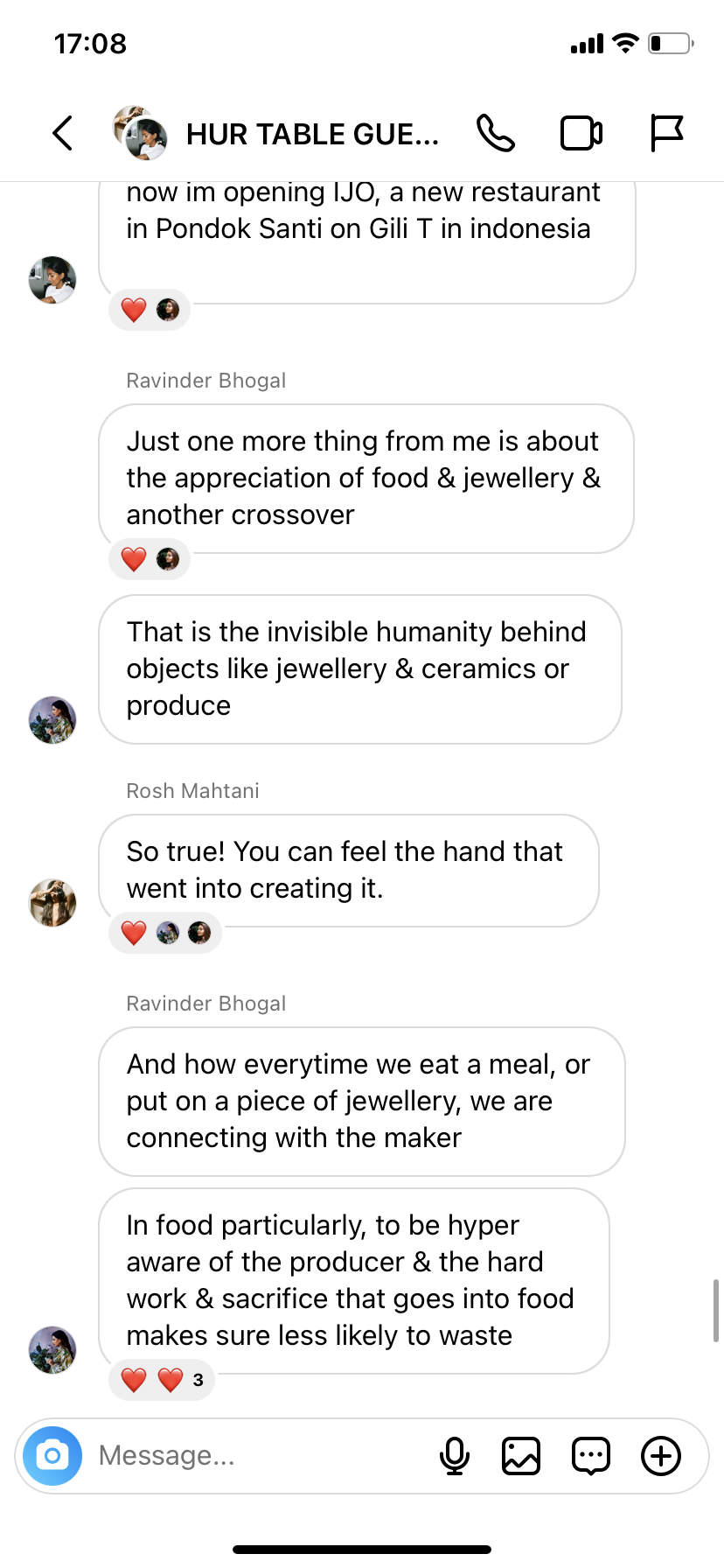Can Food Converge Cultures?
Courtesy of Alighieri
Can Food Converge Cultures?
With Rosh Mahtani, Zuri Camille De Souza, Ravinder Bhogal and Akanksha Kamath
By Akanksha Kamath
Food is the gateway drug to experiencing heritage, heirlooms, community and culture. Ask anyone, and more often than not, the kitchen table is where conversations culminate at the end of day. Supper clubs become spaces where ideas simmer and snowball into action, or connections crop from sharing bread. The way we experience food has also evolved over the years. To eat is to immerse. For example, a dish at Jikoni, a ‘no borders kitchen’ in London, boasts Indian-inspired dishes alongside the founding chef’s Kenyan heritage - making for an unexpected but harmonious menu that sings. Meanwhile, a Marseille based independent chef finds the flexibility of working within an ever-changing environment a stimulant for creativity. Shuffling between formats such as residencies in Indonesia or taking over a boat to set-up a floating restaurant, she creates a microcosm of menus that allow her to work closely with the resources at hand.
And then there is the power of food to tell ancillary stories of inter-generational dialogues. Dishes as a melding of ingredients and memories passed down by ancestors, much like they would prized family heirlooms. One jewellery designer is leaning into totems of love and heritage wrapped in recipes as a technique to share stories of her new collections.
According to a report by Fortune Business Insights, the restaurant industry is seeing its greatest growth rate ever. The global food service market is projected to grow from $2,646.99 billion in 2023 to $5,423.59 billion by 2030, at a CAGR of 10.79% during this forecast period. Women, however, only make up a small percentage of this industry, with kitchens and senior level staff being predominantly male-dominated. A new guard of women in food is looking to change that. F
rom tackling food waste and hegemony, to using dishes to plate up their multiple identities— these women are bringing a whole new perspective to the table, one that is inclusive, community-driven and collaborative.
ROSH MAHTANI
Rosh Mahtani spent her early childhood in Zambia, Africa where her parents grew up. Moving to London, aged 8, she found herself searching for her place in the world. She went on to study French and Italian at Oxford, where she fell in love with Dante Alighieri. Dante's story of being lost, afraid and uncertain stayed with her as she struggled with her own self-doubt. Unsure about her journey - both personal and career - she sought a way to weave together her love of magical objects, photography and human stories. In 2014, she began to carve one piece of jewelry for each Canto of Dante's Divine Comedy. Her lack of formal training allowed her to access freedom and forge her own language of imperfect textures to bring her strength and courage on life's adventures, whatever they might be. Her jewelry label, Alighieri, founded in 2014, creates timeless modern heirlooms rooted in literature and art.
ZURI CAMILLE DE SOUZA
An independent chef, Zuri Camille De Souza’s food inspirations come from her childhood in South-West India, born to parents from diverse backgrounds, a father from Goa born in Kenya and a mother born in Pune who lived in Zambia, Trinidad, Mauritius and Hong Kong. After living in Maine, Istanbul, Dubai, Jericho, Bombay, Rome and now in Marseille, her most dearest memories are those related to food— meals shared, impromptu dinners and the delight of discovering a new flavour. Passionate about the sacred ritual of eating, her repertoire includes pop-ups, weddings, setting up a culinary residency at Villa Medici in Rome, and currently heading up the menu at IJO in Indonesia until December 2023.
RAVINDER BHOGAL
Born in Kenya, to Indian parents, Ravinder Bhogal’s food is inspired by her mixed heritage and culture as well as her London upbringing. Bhogal is the owner of restaurant Jikoni, an award-winning food writer, tv presenter, journalist, cook and restaurateur. She has twice been included in the Evening Standard Progress 1000 list as one of London's leading influencers of progress and diversity in the capital. Bhogal won the Asian Women of Achievement Award in Association with RBS in Media in 2013. Following the success of her first cookbook, ‘Cook in Boots’ in 2009, Bhogal published her second book ‘Jikoni’ with Bloomsbury.
AKANKSHA KAMATH
Akanksha Kamath is a fashion and lifestyle writer and content consultant with decade-long experience working with global publications such as Vogue, as well as global brands in establishing their content narratives. As a Botswana born, India-raised and London-based writer, themes of 'home' and identity deeply influence her work.
We wanted to know more and asked three industry insiders for their take, curated and written by Akanksha Kamath.
